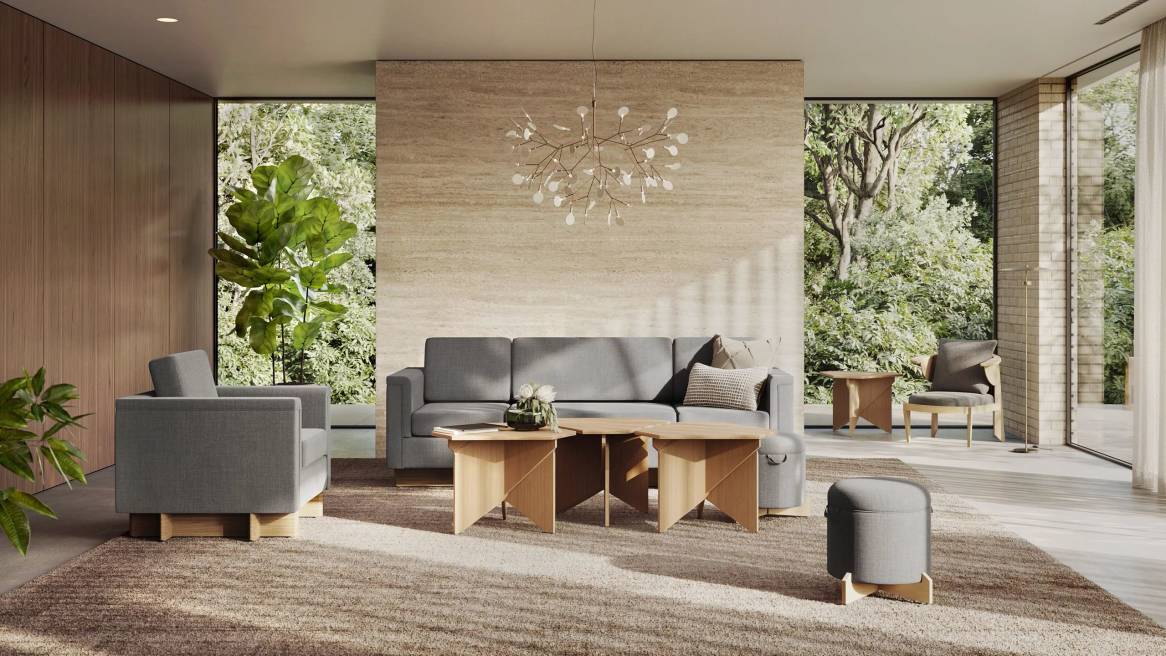Great Design. For Everyone.
Making the Frank Lloyd Wright Rockford and Galesburg Collections
Make great design available to everyone. This edict was a driving force behind Frank Lloyd Wright’s midcentury, Usonian period in architecture and furniture. And it forms the basis of the Steelcase Rockford and Galesburg Collections, the new introductions from our creative collaboration with the Frank Lloyd Wright Foundation. This required the Steelcase design team to translate the unexpected style and unmistakable vision of Wright’s Usonian work into distinctive, modern furniture for today’s home and workplace.
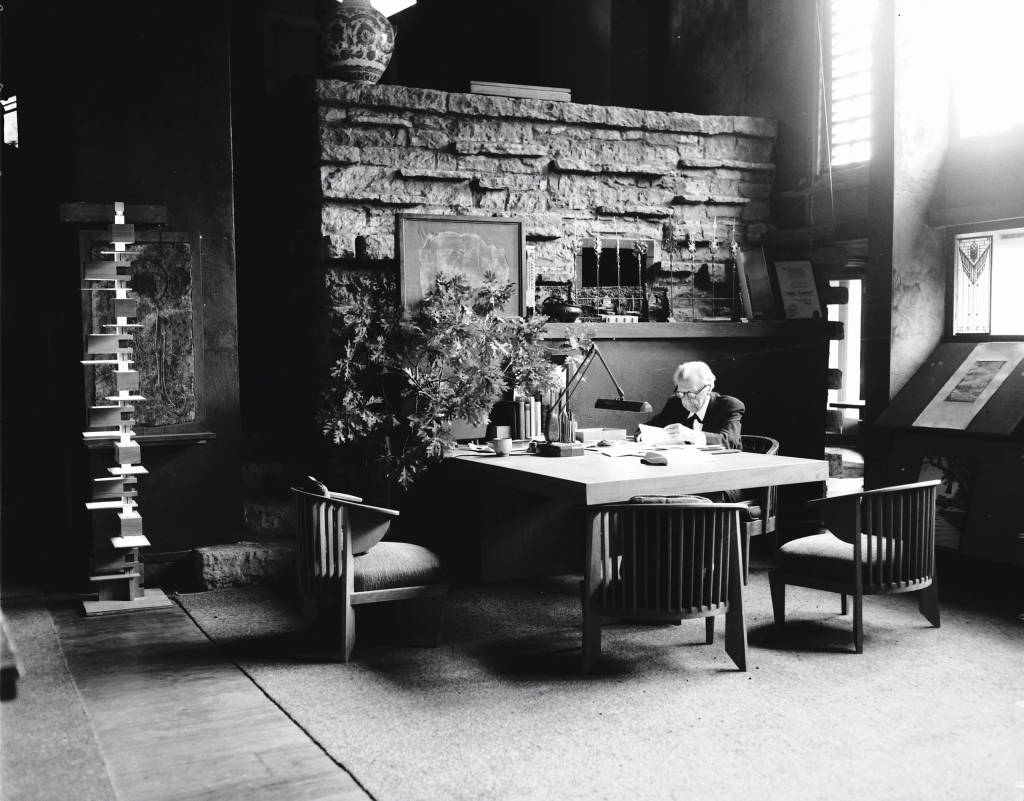
In the 1940s and 50s, Frank Lloyd Wright was at the forefront of a design movement that favored streamlined, functional forms, produced by machines for mainstream use — yet still full of the beauty of the most finely considered objects. Working in a unique style that he named “Usonian,” Wright’s homes and furnishings of this era embodied his philosophy of “organic architecture.” They were early models of affordability, modern engineering and intentional design, built by new means but rooted in nature — all factors that continue to influence the way Steelcase creates places now.
The Steelcase design team, working with the Frank Lloyd Wright Foundation, found inspiration in this progressive period of Wright’s career. Drawing on his Usonian profiles and techniques, they revisited a celebrated chair and table group to create the Rockford Collection and reimagined a line of dynamic upholstered furniture for the Galesburg Collection — standout pieces on their own or with each other that all share Wright’s signature mix of utility and pure form. The result is furniture that is collectible while feeling approachable and livable – vintage, while new. Every piece helps Steelcase today in advancing Wright’s goal of making great design available to everyone.
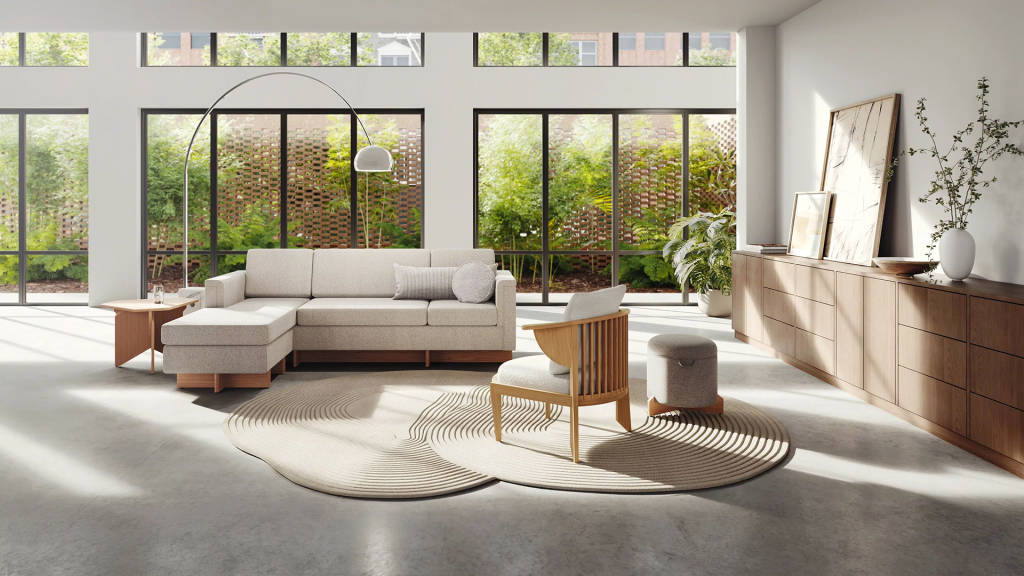
“We were struck by the humanism, materiality and novel construction of Wright’s designs from this time — they are so honest and simple, while still demanding incredibly sophisticated feats of structure and geometry,” says Meghan Dean, General Manager, Ancillary Merchandising and Partnerships at Steelcase. “Looking into the Foundation archive and studying certain homes provided us with a lens to create these collections that really move beyond the more well-known Prairie style. We’re in dialogue with Frank Lloyd Wright’s whole body of work, uncovering ideas that matter to our customers, aesthetically and historically, and which feel even more relevant today.”
The Rockford Collection: Design in the Round
Wright’s Usonian homes were intended to be modest and affordable but were still highly adaptable and able to be customized to individual requirements. One of his most meaningful residences of the time provides the inspiration for the Rockford Collection.
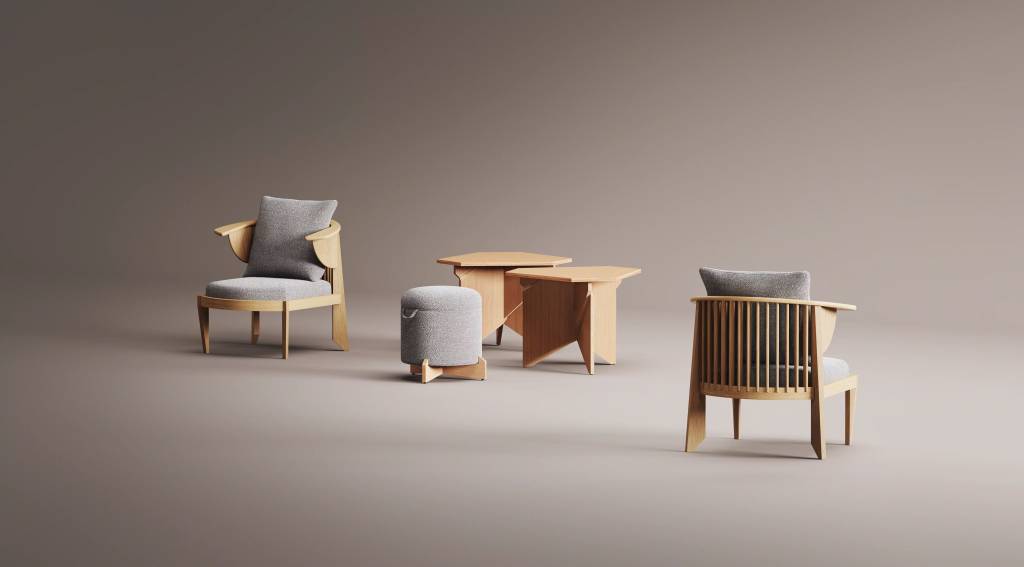
In 1952, Wright completed a home for Phyllis and Kenneth Laurent in Rockford, Illinois. Tailored to the unique needs of a veteran who was disabled, Wright’s work for the Laurents allowed Kenneth, a wheelchair user, comfortable freedom of movement. The project emphasized integrity of design for any user — a deeply human approach to considerations of accessibility
that were far ahead of their time.
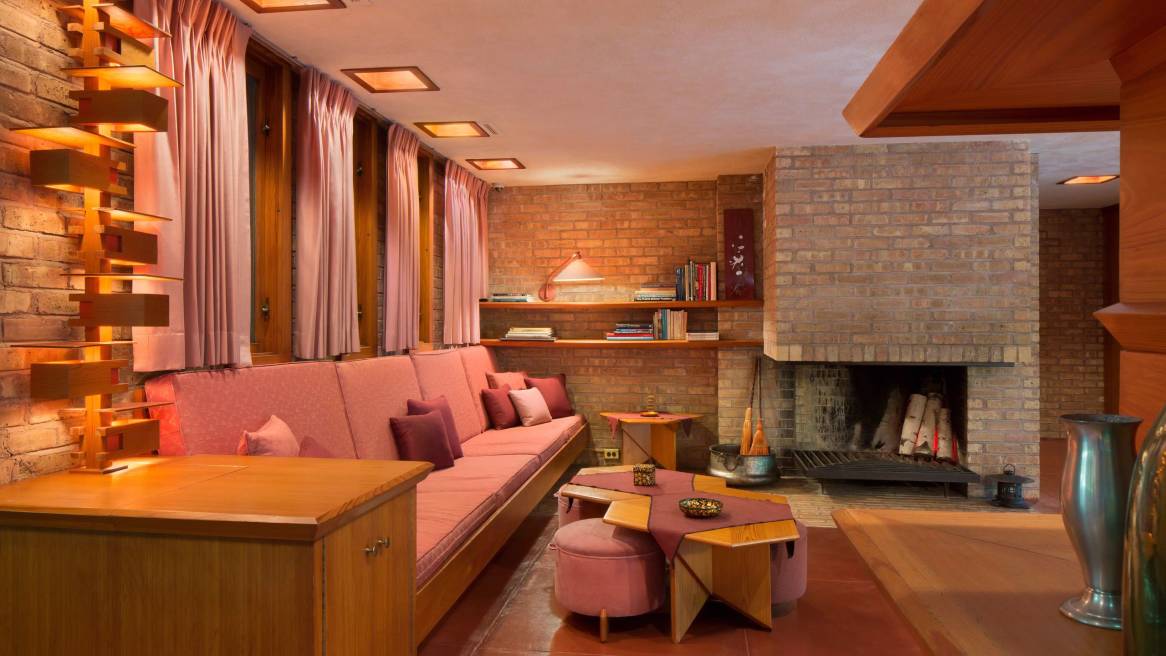
“This house helps me focus on my capabilities, not my disability. That is the true gift Mr. Wright gave to me.”
Kenneth Laurent
“We loved the simple, usable open plan of this ‘little gem’ of a house and the way those values extend to Wright’s furniture for its occupants. The pieces are modular and easy to move around — attributes we think about a lot for modern spaces, that we felt had very broad applications,” explains Rob Scheper, Director of Design, Steelcase. These themes are at the heart of the Rockford Collection’s reinterpreted designs, which are meant to be enjoyed from any angle, and combined without a prescribed front or back orientation — design in the round.
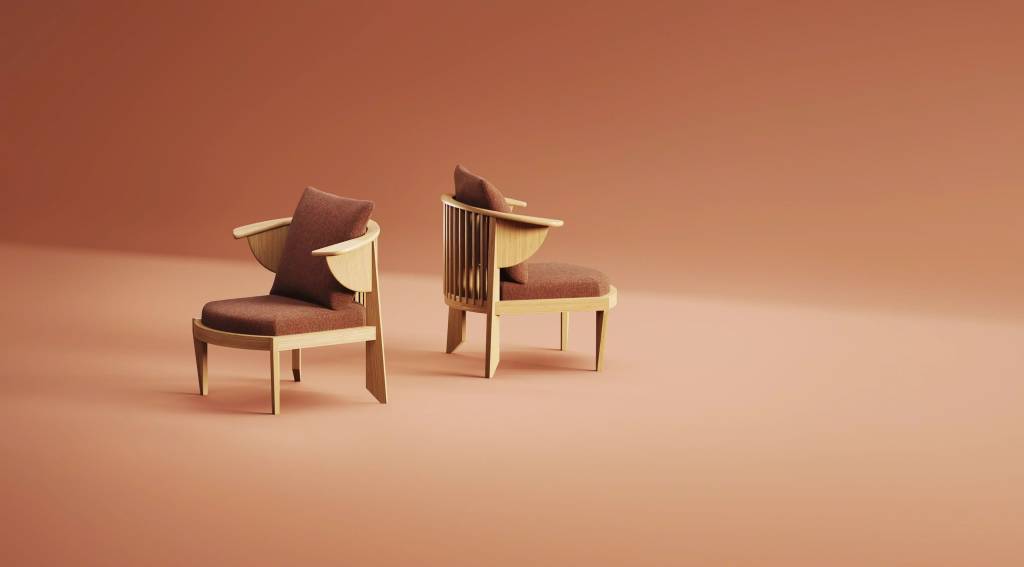
The Galesburg Collection: Following the Line
Where the Rockford Collection is based on a specific residence, the Galesburg Collection of reimagined modern upholstery was based upon drawings for a 1955 line of furniture that Wright had designed for the public, a fascinating find that included initial prototypes for a streamlined, tuxedo-style sofa. As one of the first designer collections, those pieces reflected Wright’s efforts to expand beyond the custom furnishings that he made for individual homes, where he controlled every aspect of a space. Steelcase designers found further inspiration from the built-in banquettes found in various Usonian homes in the Wright-designed Parkwyn Village and The Acres communities around Galesburg, Michigan. The Galesburg collection brings forward Wright’s intention to help more people embrace his furniture designs to create their own sophisticated environments.
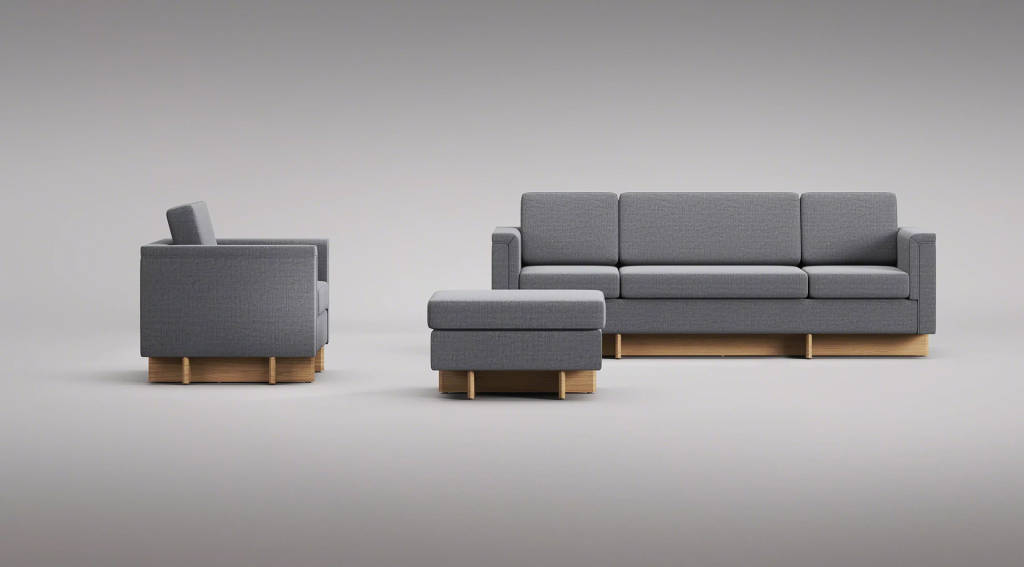
Modern Materiality: Exposed Plywood
Thinking about how to bring his Usonian designs to the mainstream, Wright had begun looking to readily available materials — wood, glass and concrete for buildings; plywood for furniture. He had already been an early pioneer in working with plywood, which he favored for its accessibility and affordability.
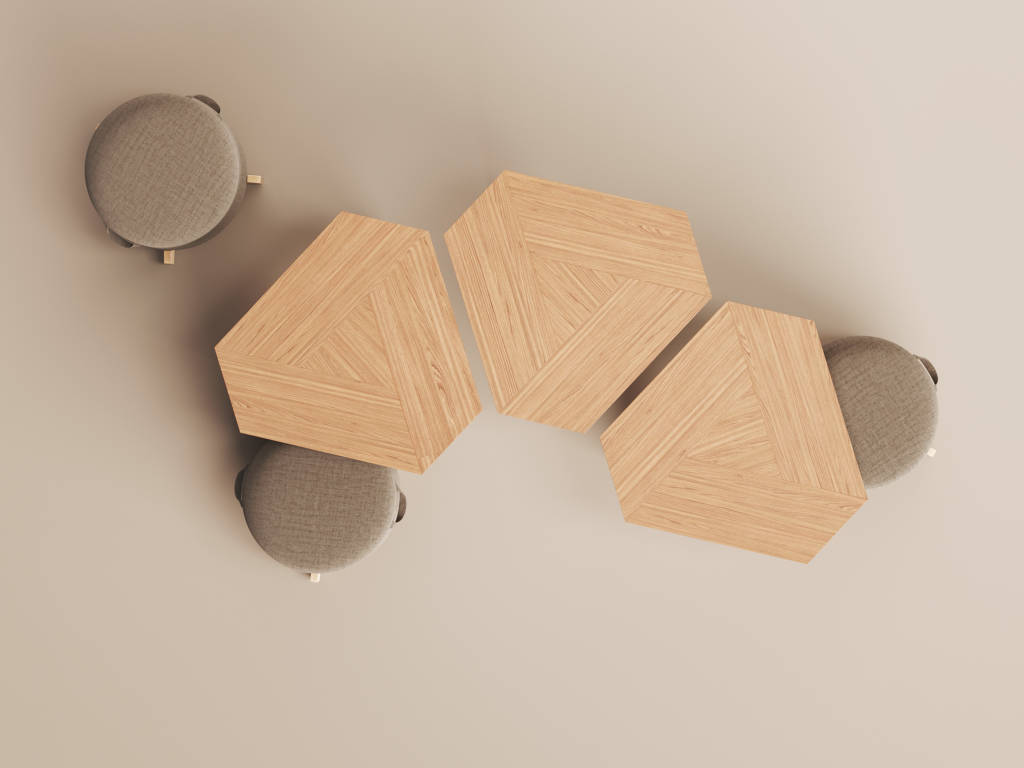
“The choice that the Steelcase design team made to feature the plywood is such a fulfilling outcome of our creative collaboration,” says Stuart Graff, President & CEO, the Frank Lloyd Wright Foundation. “Together we are honoring Frank Lloyd Wright’s vision with informed design, but we are also allowing the work to change as part of a living legacy. This is the best of what a partnership can do, as we continue our mission of sharing and interpreting Frank Lloyd Wright for people today.”
EXPLORE FRANK LLOYD WRIGHT
Learn more about our creative collaboration with the Frank Lloyd Wright Foundation.
Discover the Rockford + Galesburg Collections
Read About Our Relationship

